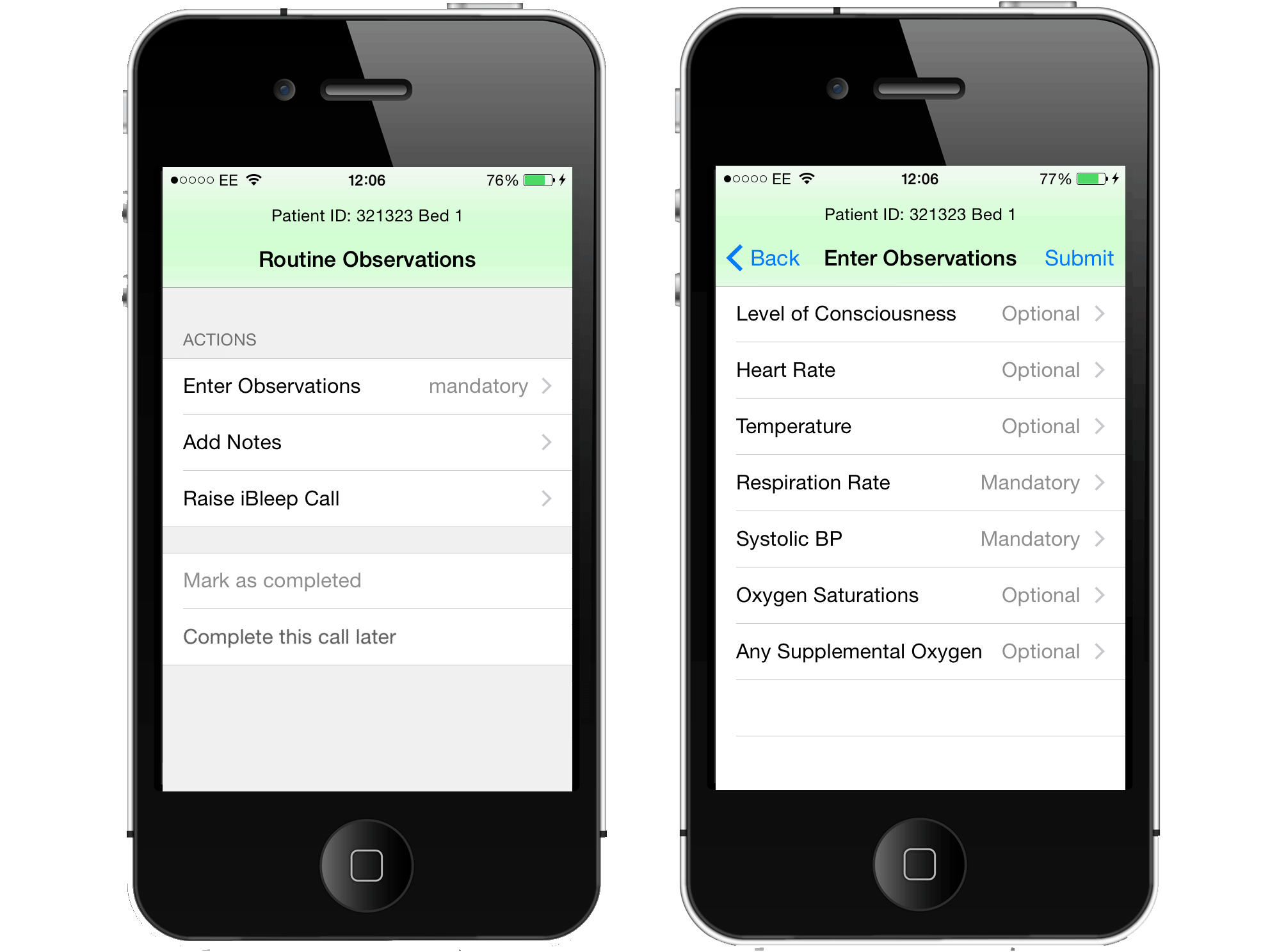Trusted by Nurses

Are your calls getting through?
Clinical communication between a nurse on a ward and a doctor is traditionally commenced by a call to a medical pager.
For a doctor, paged calls can be repetitive, are often invasive and offer no assistance in identifying the reason why, or by whom the alert was sent, nor its priority. Additionally, paged calls offer no level of ownership & can ultimately provide a detrimental service to patients that are experiencing various levels of distress.
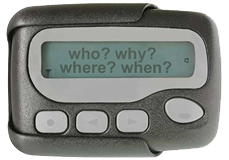
For these reasons - not all of your calls may be getting answered.
Improving Patient Care - with a little more responsibility for YOUR patient.
In its simplest form, iBleep allows dynamic two-way, real-time communication regarding your patient with clear information as to why the doctor is needed.
The ward raises a call via a computer terminal or tablet device and detail of the call is stored on a remote server. The call is automatically transmitted and an alert is sent to a mobile device carried by the doctor. In a few seconds the doctor is alerted and is able to see the reason for the call, the ward and bed location, the patient’s details and vital observation information such as oxygen level, temperature and respiration rate. As the call is read, a signal is sent back to the ward that the doctor is aware.
Calls are ranked red, amber or green according to the urgency of the call. In order to raise a call, the ward nurse is guided through a simple and intuitive 5 or 6 step process. No other action is required. These steps may include:
Select Bed/Location; Select PatientID; Select Prioritised Reason Code; Select Call Recipient and enter current observations.
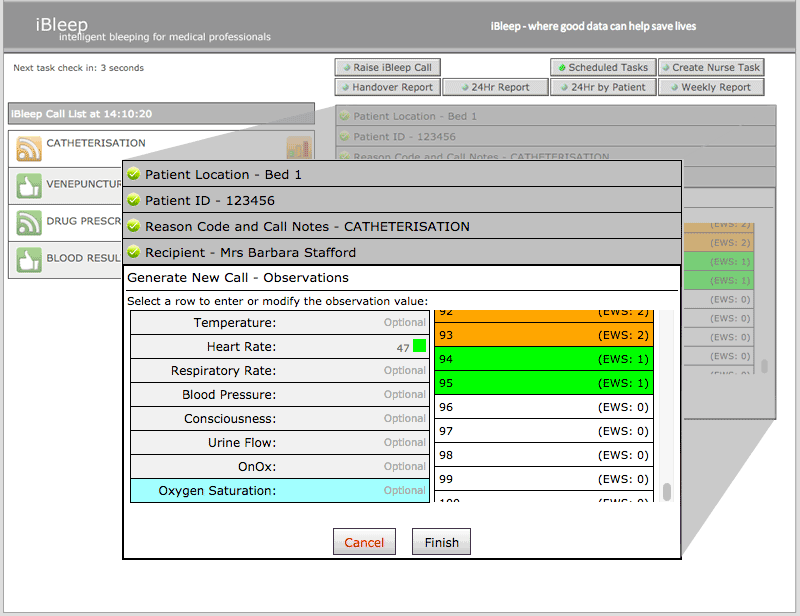
The ward screen instantly refreshes with the detail of the outstanding call, displaying details of the call, the recipient and current status.

The moment that call is read, the status updates to ‘Aware’.
No waiting by the telephone - for the doctor to call back.
iBleep gives you the confidence that the call has been read and that the doctor will visit soon.
Auto-Scheduling:
New features include advance scheduling of calls enabling low priority yet essential work to be processed by House Officers later.
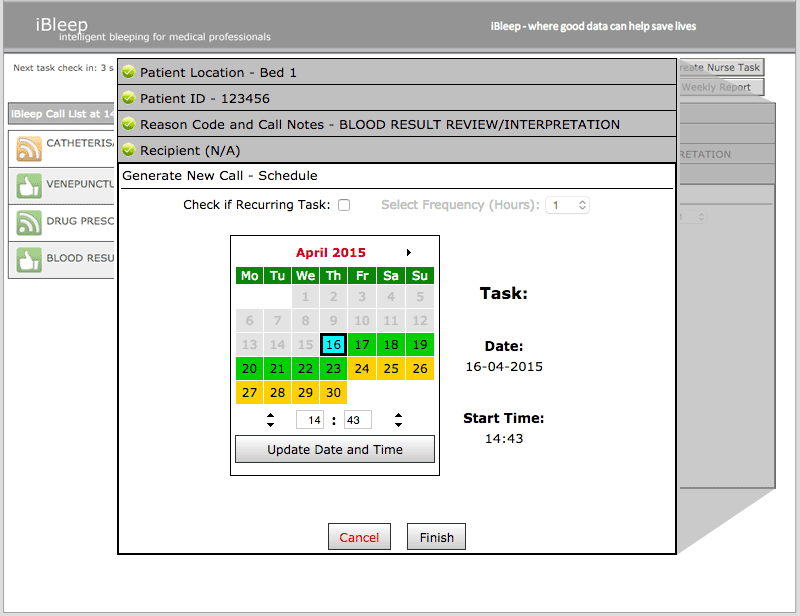
This functionality has been extended and is now built into one of our more recent interfaces - our nurse-centric task management solution "iBleep Bedside".
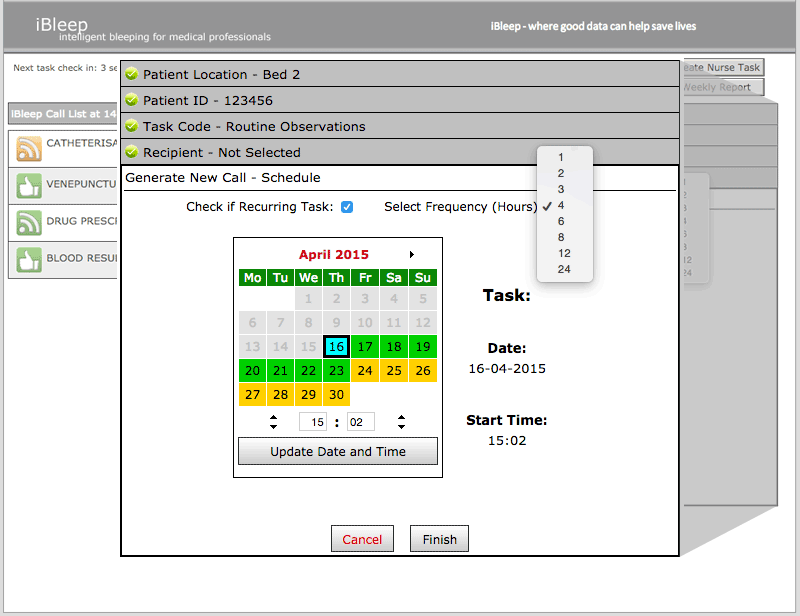
iBleep Bedside provides mechanisms to send routine nurse tasks via mobile technology, providing added functionality such as track and trigger and timed notifications.
